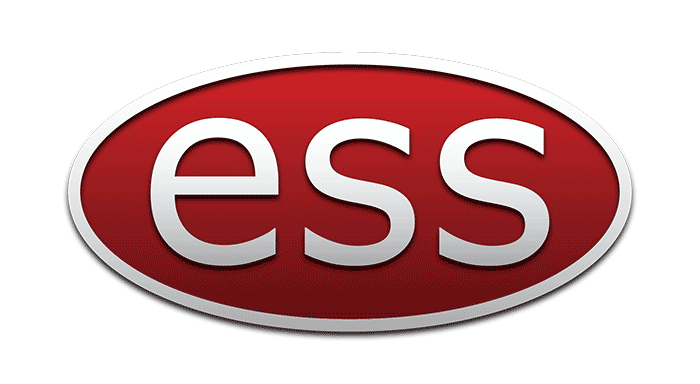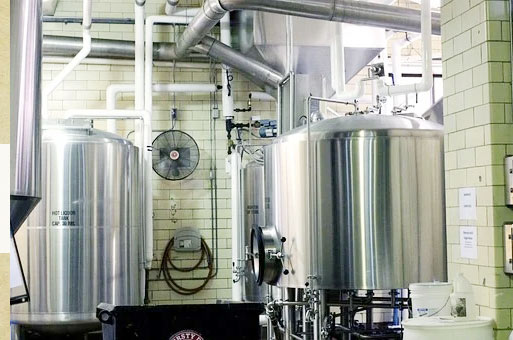Certificate in Industrial Manufacturing & Maintenance Skills

Course Details
- ESS Ltd
- Nationwide
- Manufacturing
- POA
- Further Education and PLC, Level 6 QQI
- Start Date: 09/2025
Course Description
ESS has partnered with Griffith College to provide accredited higher education qualifications to support the manufacturing and maintenance sector in Ireland.
We are delighted to offer a fully funded programme for those in employment, subject to eligibility criteria, in January 2025 in collaboration with LOETB.
This Certificate in Industrial Manufacturing and Maintenance Skills (CIMMS) is designed to give operators and technicians the knowledge, skills, and competence to undertake a broad range of technical, maintenance and service tasks in an industrial manufacturing setting.
Overview
The QQI-accredited ESS/Griffith College collaborative Certificate in Industrial Manufacturing and Maintenance Skills is a one-year part-time programme that provides key knowledge, skills, and competencies in Industrial Manufacturing and Maintenance related subjects.
The modern manufacturing technician is required to be competent in a broad range of cross-functional technical skills (Electrical/HVAC/Refrigeration) and soft skills (Communication). There is a significant demand in industry for such multi-skilled technicians.
These technicians are working in highly regulated industries including, but not limited to, pharmaceutical, life sciences, MedTech, and food and drink manufacturing and should, therefore, be familiar with Good Manufacturing Practices (GMP) and Quality Regulations.
Why study the Certificate in Industrial Manufacturing and Maintenance Skills?
- The QQI Level 6 Certificate in Industrial Manufacturing and Maintenance Skills is available on a part-time basis and aims to enable the modern technician to be industry-ready and relevant.
- Learners are introduced to a broad range of technical and soft skills to support working in industry or to enhance employment opportunities.
- The graduate will be able to work both autonomously and cross-functionally across departments within industry.
- The practical nature of the coursework lends to preparation for work in industry.
- Part-time learning allows students already working in the area extra time to hone skills.
- Learners are provided access to academic resources and personal supports through ESS’s partnership with Griffith College, Ireland’s largest private third-level college.
- This programme may also facilitate learners applying for progression to third-level programmes in NFQ Level 6 (plus) engineering programmes within third-level colleges.
Awarding Body
QQI, under ESS’s partnership with Griffith College
Course Highlights
- Graduates will be equipped with a hybrid of technical and soft skills.
- There is a core message of safety throughout the programme.
- Graduates will be able to communicate effectively with colleagues in the workplace.
- An emphasis that quality is everyone’s responsibility.
- Real benefits to employers in improving efficiency, effectiveness and productivity of systems while applying ethical, safe, and sustainable improvements.
- Possible part-funding options for those in employment, up to 40% available for eligible candidates – find out more email [email protected] / [email protected]
Course Details
MODULE 1: Industrial Electrical Safety and Systems
The Industrial Electrical Safety and Systems module is designed around industrial manufacturing and maintenance personnel, to support an understanding of working with industrial electrical systems. This module will allow the learner to work on industrial equipment, to help them diagnose and repair electrical faults in maintenance and production equipment in a safe and knowledgeable manner.
Learners will be introduced to a clear understanding of the fundamental electrical principles, laws, and concepts relevant to industrial electrical systems as the module design of a mix of theoretical and practical elements.
On successful completion of this module, learners can:
- Recognise the safety standards associated with working with electrical circuits and understand how to use electrical test equipment correctly.
- Appraise, apply the principles, and perform calculations on AC and DC electric circuits.
- Apply power calculations to electrical systems and understand the effects on transmission and distribution of electrical power in Ireland.
- Describe the operation, configuration, and testing of AC induction motors, interpret electrical drawings, and build a basic electrical circuit
MODULE 2: FUNDAMENTALS OF GMP AND QUALITY REGULATIONSThe module aims to provide students with an introduction to and understanding of the principles of quality management in the manufacturing environment. It equips learners with a fundamental grounding in the regulatory requirement for GMP, validation and calibration.
This module is designed to emphasise the role utilities and facilities play in maintaining a safe and fully operational GMP environment.
On successful completion of this module, learners can:
- Describe the application of Quality Management Systems as prescribed by current guidance documents e.g. 21CFR 820 and ISO standards e.g. ISO 13485:2016.
- Express the relevance of GMP practices and compliance in the manufacturing environment, considering such elements as good documentation practices, change control.
- Explain the consequence of calibration and validation within a GMP environment within the context of the industry standard guidelines for validation and required documentation.
- Identify the factors that affect facilities management, equipment, and processes in industry, as they impact on the layout of manufacturing sites.
MODULE 3: HVACR PRINCIPLES
The HVAC and Refrigeration Principles module is designed around industrial manufacturing and maintenance personnel, to equip the learner with the knowledge, skill, and competence to maintain the efficient operation of refrigeration and HVAC plant and systems.
This module delivers the key foundational elements of HVAC and Refrigeration Principles and Systems, it covers topics that inform learners about air handling units, and vapour compression cycles.
On successful completion of this module, learners can:
- Identify the main components, control systems and standards in a typical Air Handling Unit.
- Explain the processes air goes through in a typical HVAC using a Psychrometric chart and outline practical skills required to ensure efficient operation.
- Identify the major components and their functions on a Vapour compression system.
- Carry out an analysis of a vapour compression cycle using a pressure enthalpy chart
MODULE 4: WORKPLACE COMMUNICATION
This module aims to introduce learners to the necessary communication process, tools and techniques used within industry. It equips learners with skills in verbal and non-verbal communication, questioning, active listening, creating, and delivering effective presentations and technical written communication.
The learner will develop detailed knowledge of the responsibilities surrounding effective communication in the context of formal or informal horizontal and vertical organisational communication linkages.
The module explores how to present an external image that is both positive and professional and employ various methods to manage time, stress, and conflict.
On successful completion of this module, learners can:
- Use personal communication techniques, demonstrate key active listening skills, write business documentation, and construct professional correspondences.
- Demonstrate verbal (and non-verbal) communication skills to make an effective presentation that is both positive and professional.
- Identify and employ various methods to manage stress, time, and conflict.
- Consider own professional skills and competencies as required to support learning and ongoing professional development, and ethical practice as a technician

